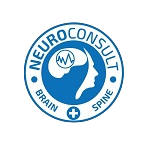Nerve damage is known as Peripheral Neuropathy and it’s caused by damage to the nerves in the extremities of the body, such as in the limbs (hands, feet and arms).
The peripheral nervous system forms a network of nerves that lies outside the central nervous system of the human body. Diagnosis for peripheral neuropathy depends on the nerve that is affected.
The Human Peripheral Nervous System:
There are differnet types of peripheral nerves and their functions. They include:
Sensory Nerves: These nerves are connected to the skin and are responsible for transmitting touc, feel or sensation.
Motor Nerves: These are connected to the muscles and are responsible for muscle co-ordination
Autonomic Nerves: These nerves are connected to the internal organs and are responsible for regulating bodily functionsand unconscious acts such as blood preassure, bladder function, heart rate, sexual arousal, digestion, urination etc
Symptoms of Peripheral Neuropathy:
- Weakness in muscles, especially feet
- Loss of balance or co-ordination
- Tingling
- Numbness
- Loss of sensation in limbs
- Burning sensation in feet or hands
When to See Your Doctor:
With the onset of any of the symptoms of peripheral neuropathy and having an ulcer or a cut that never gets better, then it is much important to rush to Medical Practitioner (neurologist) for proper diagnosis and treatment. This may involve undergoing some tests and answering questions on your health.
A Doctor may order for tests such as:
- Blood tests
- Imaging tests (CT or MRI)
- Nerve function tests
- Biopsy
Treatment
Treatment goals are to manage the condition causing your neuropathy and to relieve symptoms. If your lab tests indicate no underlying condition, your doctor might recommend watchful waiting to see if your neuropathy improves.
Medications
- Pain relievers: OTC drugs, such as nonsteroidal anti-inflammatory drugs, may help alleviate mild symptoms. Painkillers may be prescribed for more severe symptoms.
Medications such as tramadol or oxycodone, may lead to over-dependence or addiction, hence are only prescribed when the other treatments fail.
- Anti-seizure medications: Medication like pregabalin (Lyrica), which was developed to treat epilepsy, may help alleviate nerve pain. Its side effects however, may include drowsiness and dizziness.
- Topical treatments: Capsaicin cream, which has an active substance that can be found in hot pepper, may help bring about improvements in peripheral neuropathy symptoms. Though it can be intolerable at times, it may help lessen skin burning and irritation over time when applied on the affected area.
- Some tricyclic antidepressants, such as amitriptyline, nortriptyline (Pamelor) and doxepin, have been found to help alleviate pain chemically, by interfering with some processes in the central nervous system that causes us to feel pain.
Some side effects of these medications may include dry mouth, drowsiness, dizziness, decreased appetite, nausea and constipation.
Therapies
Below are some therapies and procedures for alleviating peripheral neuropathy:
- Transcutaneous Electrical Nerve Stimulation (TENS)
- Plasma exchange and intravenous immune globulin
- Physical Therapy
- Surgery

Add a Comment